At Sierra Tucson, we are dedicated to providing compassionate care and clinical excellence. Our behavioral health and addiction recovery programs are designed to help our patients achieve positive mental health outcomes and find lifelong healing and recovery. Our approach to treatment utilizes evidence-based and integrative therapies to promote positive outcomes for each person.
Quarterly Treatment Outcomes
Every quarter, Sierra Tucson Director of Treatment Outcomes Alex Danvers, Ph.D., creates a summary report of the latest outcomes for Sierra Tucson during this period.
In the Fourth quarter of 2023 (October – December), the Measurement-Based Care program moved from completing assessments only at pretreatment and midtreatment to assessing patients every two weeks throughout their stay. This means that results for the fourth quarter of 2023 were able to capture changes in patients from the start to the end of treatment.
Data from the start of treatment to the end of treatment was collected for 38 people. The average age was 40, with ranges from 18-78 years of age. There were 52 % men, 45 % women, 2 % nonbinary individuals, and 1 % who did not specify their gender.
Although all mental health symptoms assessed declined over the course of residential treatment, there were particularly dramatic drops in depression, chronic pain, and PTSD symptoms:
Mental Health Symptoms Decreased *
There were statistically significant declines in cravings for all substances of abuse during the course of residential treatment. Several particularly large drops were seen:
Substance Cravings Decreased *
In the course of residential treatment, large gains were seen in three domains of Quality of Life:
Quality of Life Increased *
Gains in all subjective measures of mental health were maintained after patients left treatment. Average scores for quality of life, ability to handle stress, and satisfaction with relationships was at or above the mid-point on each scale at discharge, and stayed that way for the first full year after leaving.
Outcomes reporting is conducted by Alex Danvers, PhD.
Mood Treatment Outcomes
At Sierra Tucson, our mood disorder treatment program is designed to meet the unique needs of people who are struggling with various mental health concerns. Our multidisciplinary approach to treatment combines traditional and alternative therapies to treat the whole person — mind, body and spirit.
People who are enrolled in the mood disorder program at Sierra Tucson complete the Comprehensive Psychological Profile (CPP) upon admission and then again after two weeks of treatment. According to data from the mood treatment program outcomes report, patients experienced significant improvements in the following areas:
Mood Disorder Program Outcomes *
After discharge, 616 of the patients who originally participated in the CPP completed a posttreatment survey through the Connect 365 app. This data was collected at various points during the first year after treatment and revealed the following:
Hospital/Emergency Room Visits *
Days Using Substances *
Satisfaction with Relationships and Ability to Manage Stress *
These mental health treatment statistics show that early in treatment, patients experience an improvement in energy levels and sleep patterns, get more involved in activities and start to stabilize. After treatment, patients maintain strong improvements in overall quality of life, emotion regulation skills and confidence that they can rely on social support in the future.
Drug Addiction Recovery Outcomes
At Sierra Tucson, our addiction recovery program supports people who are struggling with drug and alcohol addictions. Patients who need immediate stabilization can enter our behavioral health inpatient unit for detox before transitioning to our residential program. Patients who participate in our drug addiction recovery program complete the CPP upon admission and then again two weeks later. Statistics from the addiction treatment outcomes report show that our programs quickly improve treatment outcomes:
Addiction Treatment Outcomes *
Following discharge, 349 patients who completed the CPP filled out a postdischarge survey through the Connect 365 app. Data was collected after an average of four months posttreatment, and participants from the addiction recovery program reported the following:
Support Group Visits *
Days Using Substances *
Also After Treatment *
Sierra Tucson’s addiction recovery program provides vital support and stabilization services for people who are struggling with addictions. Posttreatment statistics demonstrate that patients are more engaged in support groups, have higher relationship satisfaction, use substances less and are more compliant with treatment plans, indicating the program’s effectiveness in helping people achieve long-term recovery.
Trauma Recovery & PTSD Treatment Outcomes
Sierra Tucson offers a trauma recovery program for adults to help them stabilize and experience enhanced daily functioning and overall quality of life. Our program focuses on helping people process the effects of trauma and equips them with resources to support them in their healing journeys.
Patients who entered the trauma recovery and PTSD treatment program completed the CPP upon admission and then again after two weeks. Statistics from the trauma recovery program outcomes report reveal positive findings for patients who engaged in treatment:
PTSD Symptoms Decreased *
After discharge, 349 of the patients who participated in the CPP filled out a posttreatment survey through the Connect 365 app. Data was gathered throughout the first year after discharge, and trauma and PTSD recovery outcomes were overwhelmingly positive:
Improvements Noted *
Days Using Substances *
Also After Treatment *
These trauma recovery statistics show how Sierra Tucson’s programming is highly effective in helping people find relief from PTSD symptoms and symptoms of comorbid mental health concerns, such as depression, anxiety, chronic pain, stress, substance use and sleep disturbances. The program has also helped people experience significant improvements in their overall quality of life. Gains made at Sierra Tucson were maintained after leaving in areas such as relationship satisfaction, treatment compliance and engagement in support groups.
Red, White, and Blue Program Treatment Outcomes
Sierra Tucson offers a specialized Red, White, and Blue program for members of the military, veterans, retirees, and first responders whose lives have been disrupted by behavioral health concerns.
Statistics from the Red, White, and Blue program outcomes report reveal positive findings for patients who engaged in residential treatment:
Click here for the full 2024 Q3 Red, White, and Blue report.
Mental Health Symptoms Decreased *
While in residential treatment, average craving scores were:
Substance Cravings Decreased *
While in residential treatment, average quality of life changes were:
Quality of Life Increased *
* Methodology
The Sierra Tucson residential and inpatient programs assess patients and track treatment progress through the Measurement Based Care (MBC) program. This program provides a comprehensive assessment of 19 key outcomes for each patient, including mental health symptoms, substance cravings and well-being. We use this data to help patients gain greater insight into themselves, to help therapists and medical care providers create and update treatment plans and to track the overall success of our facility and treatment programs.
Sierra Tucson also monitors patients’ long-term mental health outcomes after treatment. We offer former patients, referred to as alumni, free access to the Connect 365 app-based program for a year after their discharge. This program connects alumni with coaches who can help them set goals and discuss their postdischarge care plans. Some alumni choose to complete a postdischarge survey through the Connect 365 app, and the feedback they provide helps us gain a deeper understanding of how well Sierra Tucson’s programming prepares patients for life after treatment. This page contains information on treatment outcomes for patients at Sierra Tucson, and after discharge from Sierra Tucson.













